Located at the western end of the Taurus Mountains, Isparta is a little-visited province of pine, oak, and juniper covered slopes and abundant mountain lakes. Known in ancient times as Pisidia, this region’s geography and mountainous barriers kept foreign invaders at bay for much of history. And much in the same way, it has to this day preserved a traditional way of rural life fast fading from many parts of this country. While an excessive amount of tourists flock to the scorching beaches of the Mediterranean year after year, just a couple hours’ drive to the north lies a lands of valleys and peaks, lakes and forests, ancient cities and villages that definitely deserve a little bit more of the spotlight.
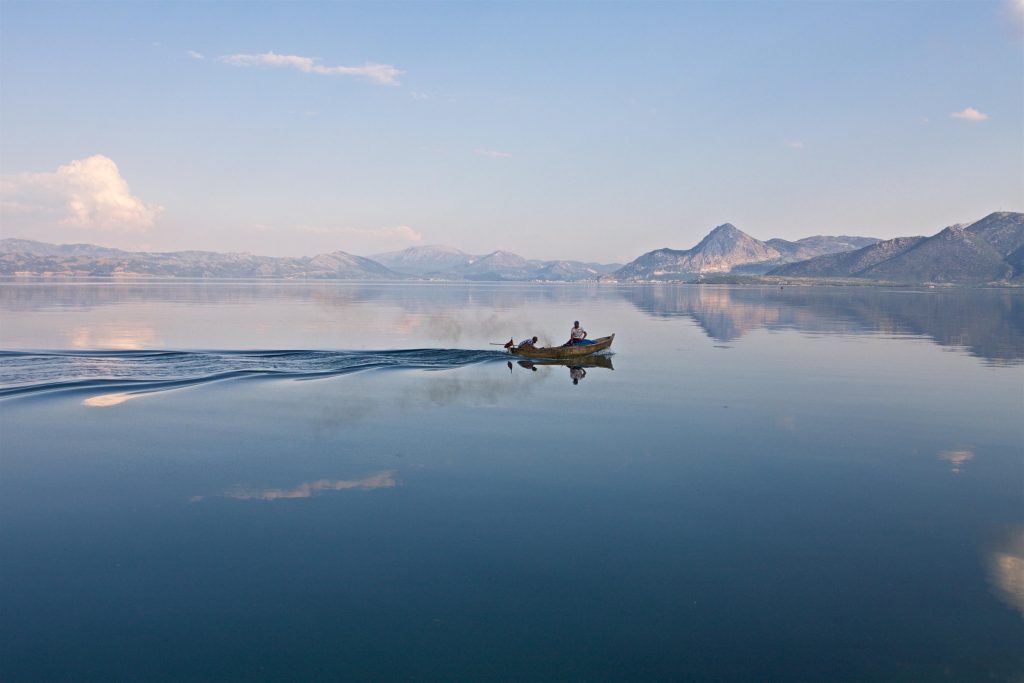
I spent a couple weeks last summer sleeping in my VW Transporter turned caravan, exploring ‘Turkey’s Lake District’. Unfortunately, hotels and guesthouses are rare outside of the cities and major destinations, so get comfortable with (or excited about) camping or caravanning. As far as finding a spot to pitch camp, sources of water are quite common and in my experience, locals seem welcoming and open to strangers sleeping in colorful plastic huts. Due to its proximity to Antalya and Isparta airports, this region is fairly accessible, although having a means of private transportation (car/bike) would make
seeing some of the more isolated areas easier. You should also be aware that in rural areas, markets may be uncommon, and those that you do stumble across may be stocked with nothing more than cookies and warm soda. Local villagers often grow and produce most of what they eat at home, so if you are comfortable with asking, you might be able to find some fresh cheese, eggs, and the like, but the best thing to do is to prepare your supplies before you arrive in these rural regions.
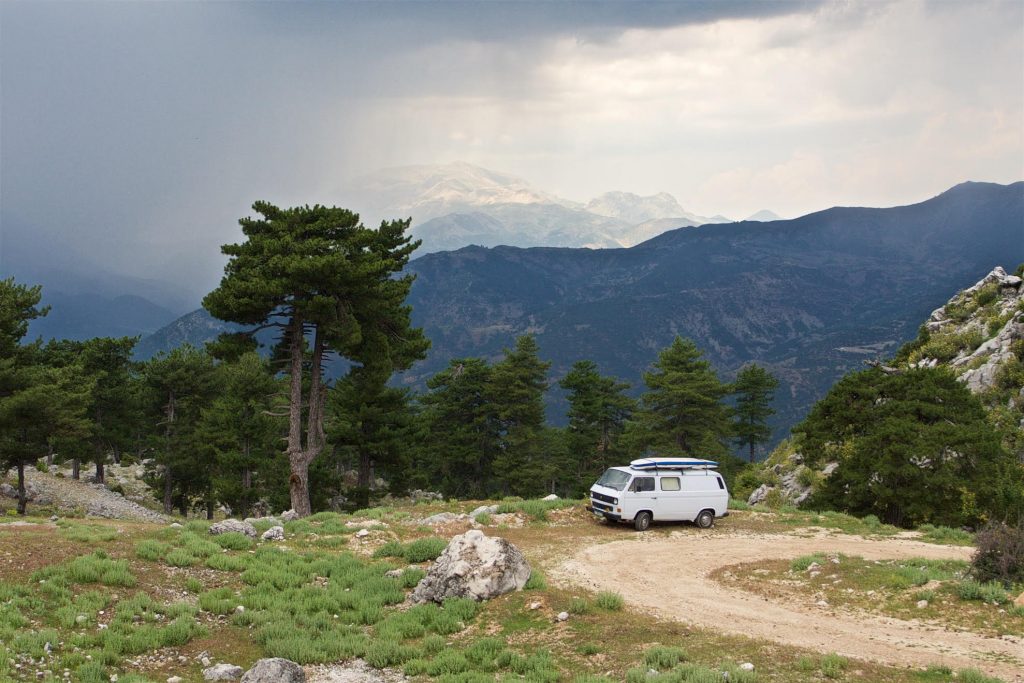 The first stop on my journey this summer was the ancient city turned rock-climbing area, Kapıkaya. Opened just 2 years ago, there are close to 80 climbing routes here, perfect for the summer season when climbing in most coastal areas is nearly impossible, and definitely not enjoyable. And it’s not just for climbers either, the ancient ruins here are in great condition; the altitude and out-of-the-way location on the summer pastures of Güneyce Village have left them far from destructive hands. The ancient name of this settlement is unknown, but it’s clearly a classic Pisidian city perched among the mountains. There’s water and lots of grassy flat spots for great camping, and the local shepherd is more
The first stop on my journey this summer was the ancient city turned rock-climbing area, Kapıkaya. Opened just 2 years ago, there are close to 80 climbing routes here, perfect for the summer season when climbing in most coastal areas is nearly impossible, and definitely not enjoyable. And it’s not just for climbers either, the ancient ruins here are in great condition; the altitude and out-of-the-way location on the summer pastures of Güneyce Village have left them far from destructive hands. The ancient name of this settlement is unknown, but it’s clearly a classic Pisidian city perched among the mountains. There’s water and lots of grassy flat spots for great camping, and the local shepherd is more
than welcoming. He is one of those rare content people who live slowly and enjoy every little moment. And I can’t think of a better place to do so.
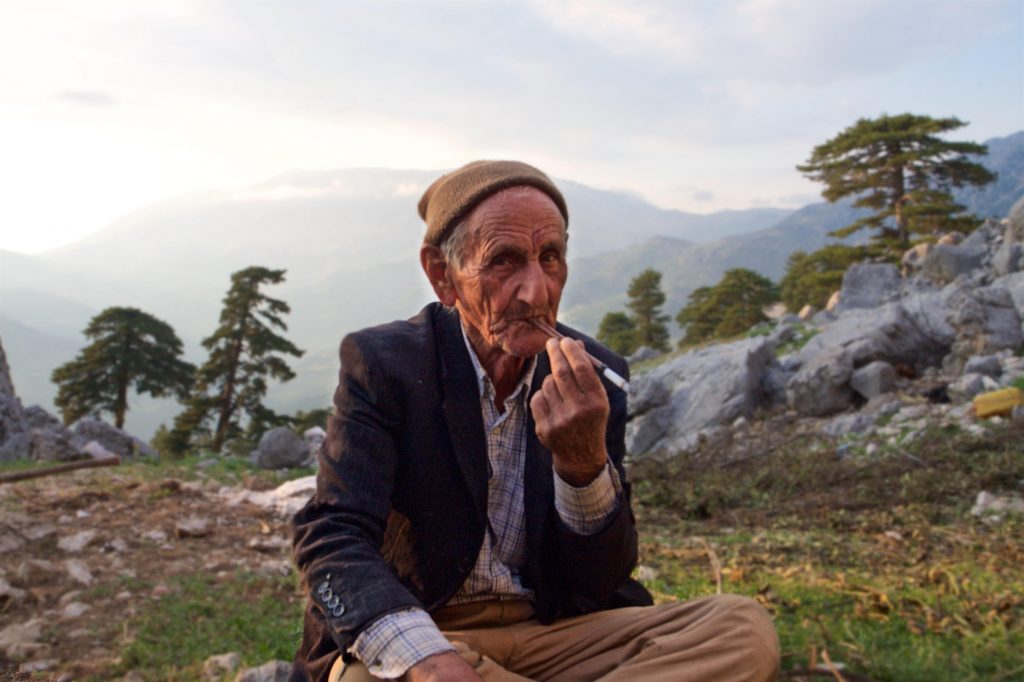
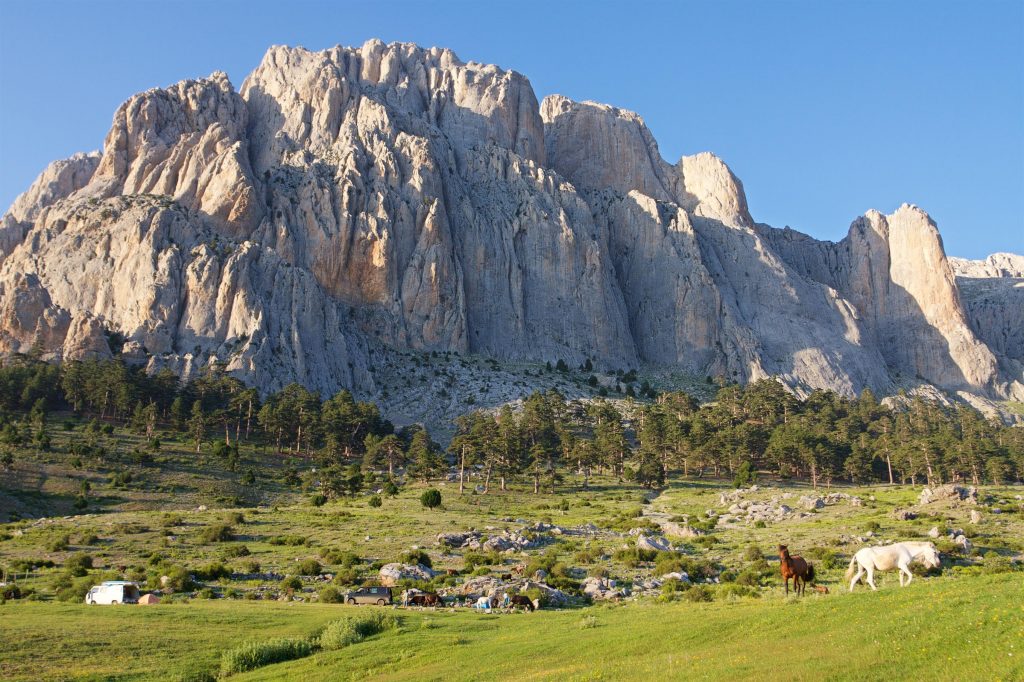
Dedegöl is the kind of place where you go for one night and stay for three. There are actually two main camping areas on either side of the mountain itself, but we stayed at the ‘Kuzukulağı Yaylası’, a stunning horse-filled green meadow opposite towering rock faces. This is also a relatively popular place to climb, but we went to hike to the top of the commanding cliffs. The view is beautiful and the weather is fresh and cool. Sadly this area has been opened up to mining analyses and soon may be stripped away, block by block. As far as camping, there’s plenty of flowing water for keeping beers cold and of course drinking, cooking, and washing up. The nearest village is Eldere, but its best to buy supplies in Aksu, which is about one hour away, so come prepared.
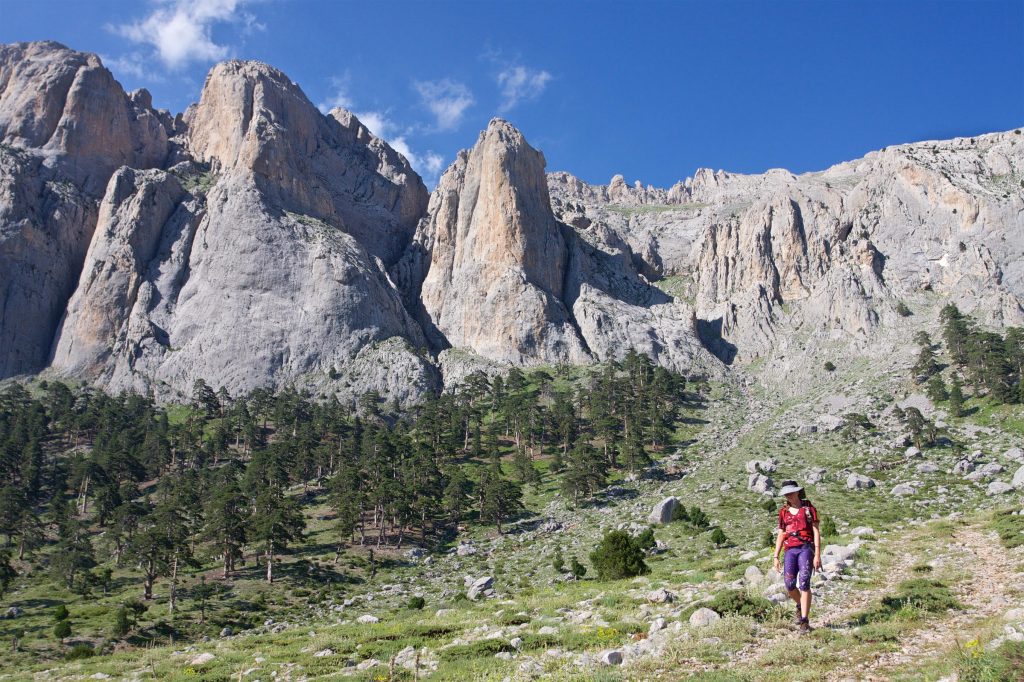
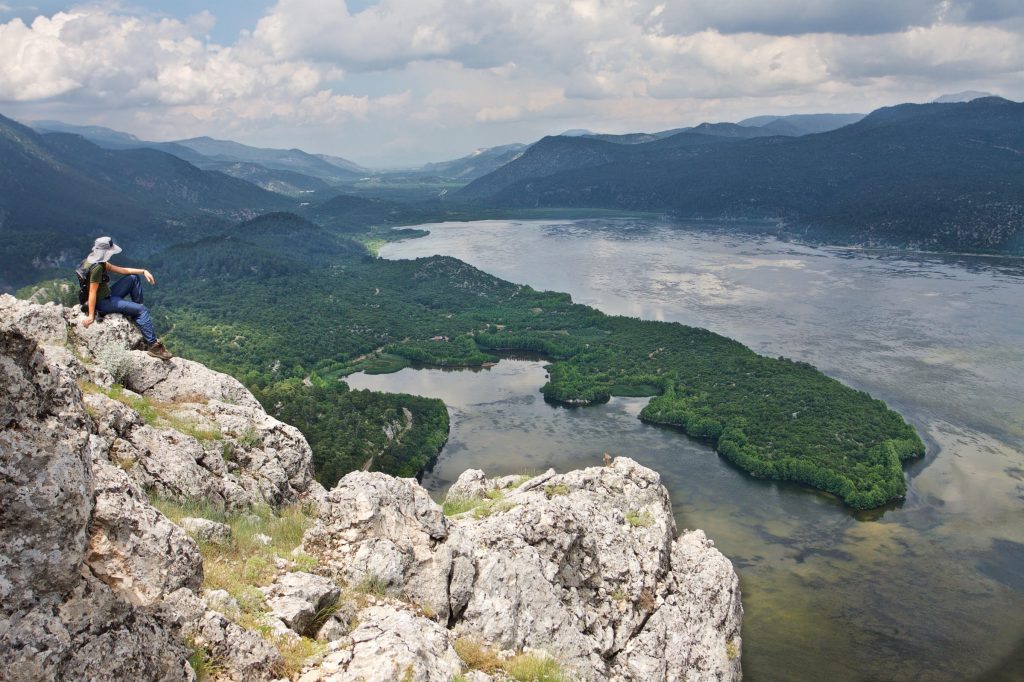 Lake Kovada comprises one of the 40 national parks in Turkey, so there is an information center, small museum, bathrooms, etc. Unfortunately this also means that you are not supposed to camp. The lake and surrounding hills are rich in wildlife and simply beautiful. However unimpressive the upkeep and management of the park was, the natural surroundings made up for it. After a much recommended hike up to an overlooking hilltop (which the guys working for the park can explain), we jumped on our paddleboards. I’m assuming we were the first people to have ever SUP’ed in Lake Kovada, and definitely
Lake Kovada comprises one of the 40 national parks in Turkey, so there is an information center, small museum, bathrooms, etc. Unfortunately this also means that you are not supposed to camp. The lake and surrounding hills are rich in wildlife and simply beautiful. However unimpressive the upkeep and management of the park was, the natural surroundings made up for it. After a much recommended hike up to an overlooking hilltop (which the guys working for the park can explain), we jumped on our paddleboards. I’m assuming we were the first people to have ever SUP’ed in Lake Kovada, and definitely
the first ones the park rangers had ever seen, as they came out to try to stop us from…spear fishing? Anyway, this park should not be missed, but may be best visited just for the day as camping is not technically allowed (but as the ranger said, will probably remain unseen).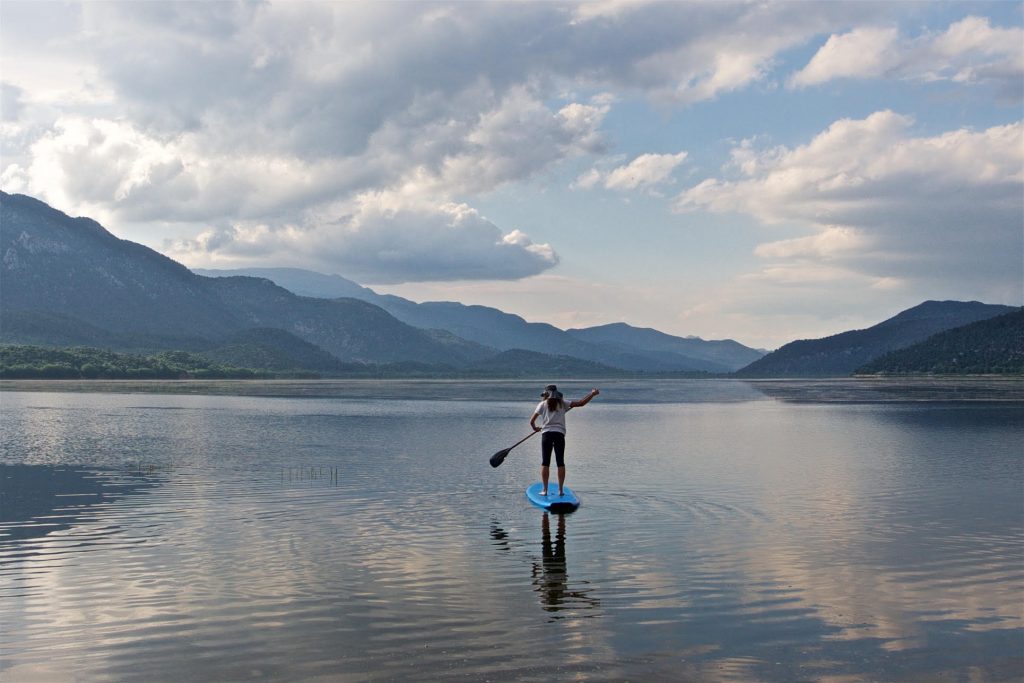
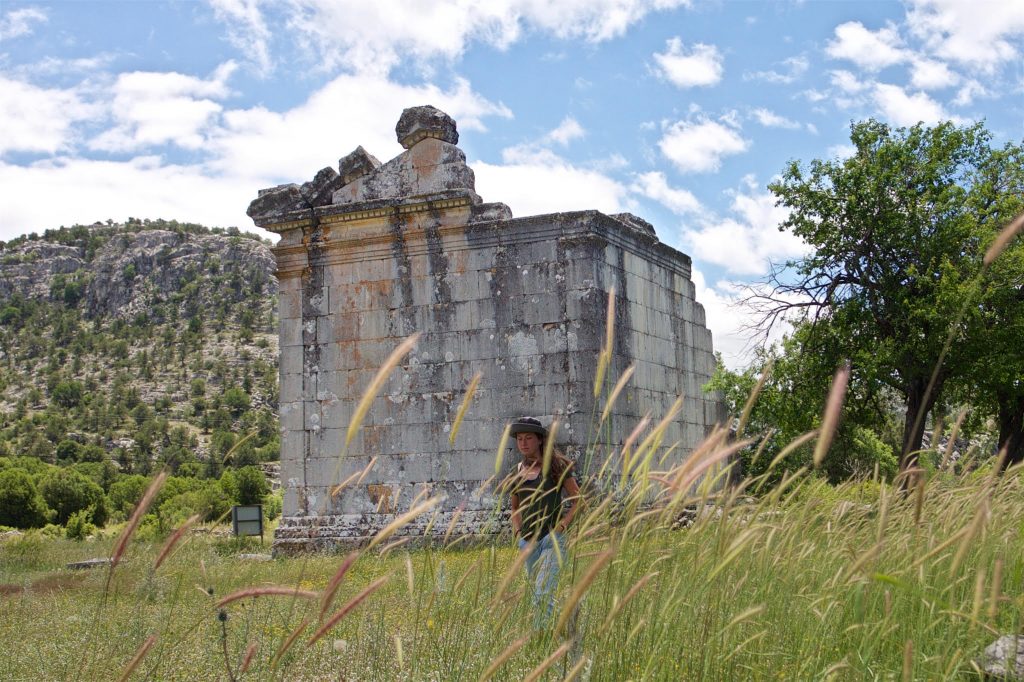
Adada is a Pisidian city located near the modern day village of Sagrak. The settlement is found on the St. Paul Trail, a 500 km hiking trail running from Perge in Antalya to Yalvaç, Isparta. The section of this trail starting from Adada and running down to the village takes place on an intact section of Roman road paved with massive stone blocks. It’s the most impressive ancient road I’ve seen in Turkey, sadly becoming rarer and rarer as they are
being torn up and replaced by asphalt roads. Ironically, the modern day road here, built a few decades ago, runs right through the ruins of Adada. You’ll have to cross the street to get from the theatre to the agora. We arrived to Adada tired and hungry and decided to park there for the night, but as always, suspicious villagers were quick to inform the local watchman who was knocking on our window moments later. As travels in Turkey usually go, he was welcoming, showing us to a more comfortable parking spot and inviting us into his hut for tea. Just how many people can say that they’ve slept within the borders
of an ancient city?
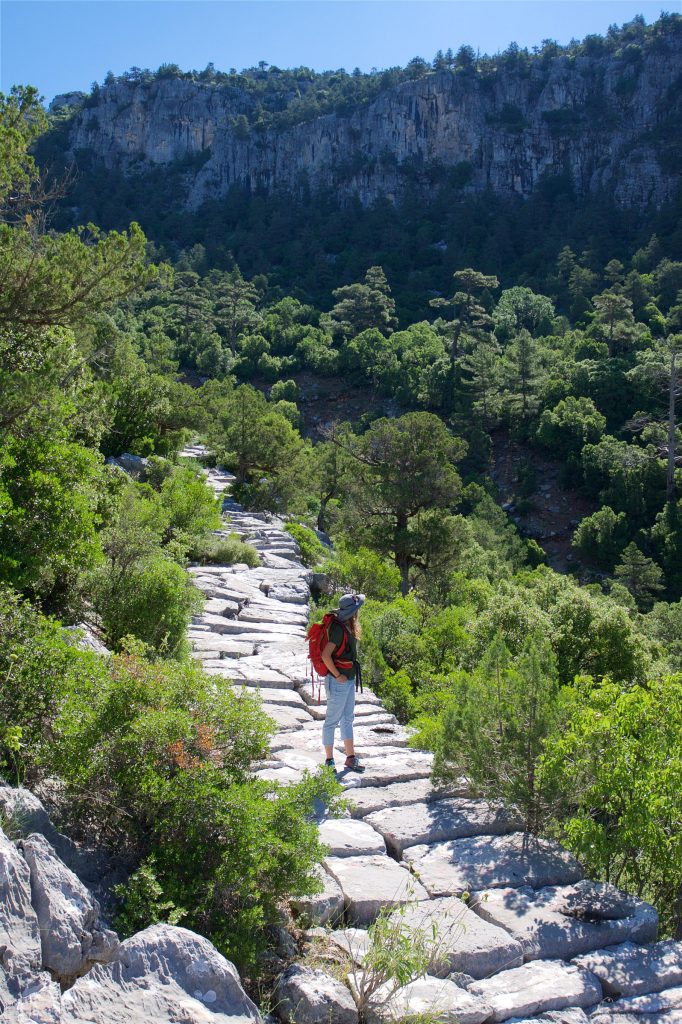
There are numerous other mountains, lakes, canyons, and ruins to see. You could spend months just exploring every corner of Isparta, however this region is changing fast. Without the influence and income of tourism, many local mountains and lands are being sold to mining operations, which leave a decidedly unwanted mark on the landscape. The biggest thing we can all do to help is visit these places; just seeing travelers helps locals understand the value of their surroundings.










Great article and photos! Nice to see some info on a less-visited part of Turkey.